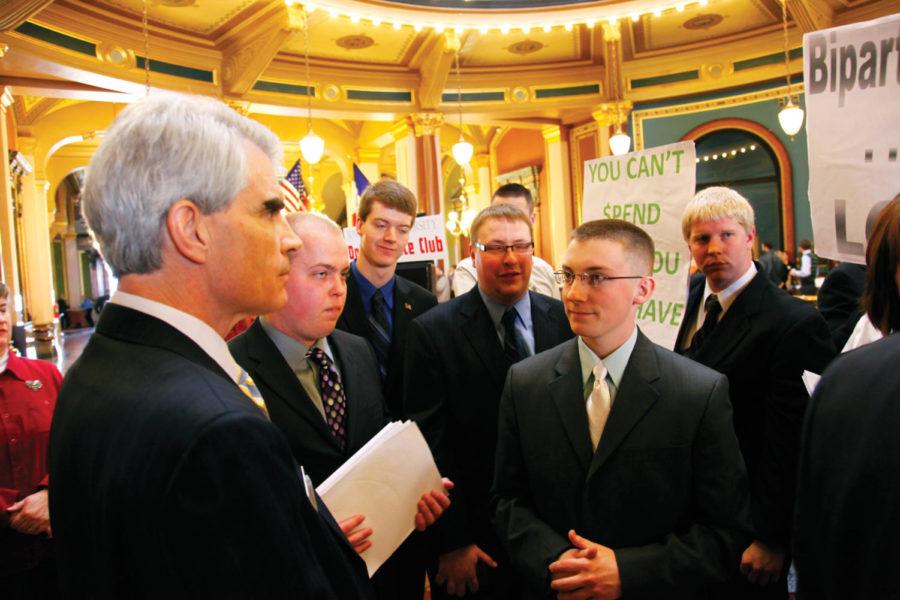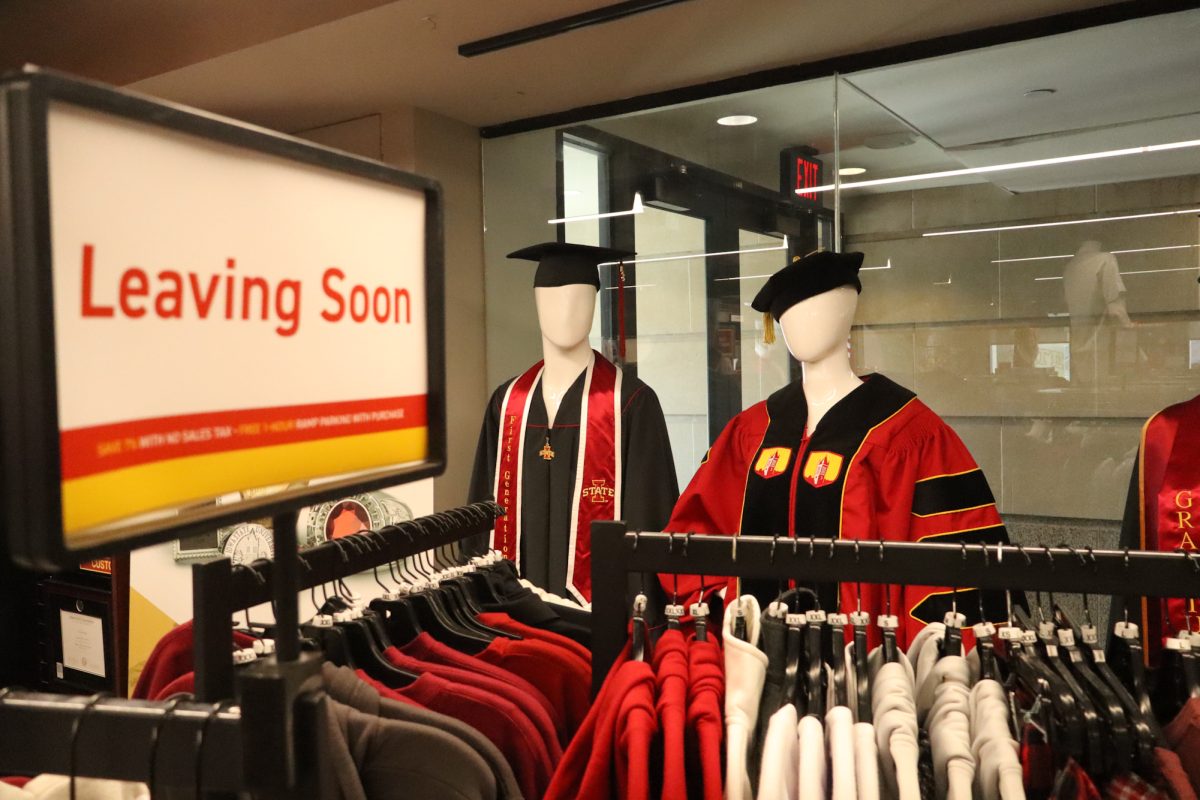Guest column: Politics affects you whether you like it or not
Photo:Clark Colby/Iowa State Daily
Logan Pals senior in industrial engineering speaks with Kevin Koester State Representative, at Regents Day Political Rally at the Iowa capital.
August 24, 2011
I teach political science, and in my Introduction to American Government and Politics (PolS 215), I hear something over and over again. Many of the students are taking the course as a required class or to fulfill their social science elective. Others just need three credits and my class fits their schedule.
Of course I explain several times during the term that whether they are interested in politics or not, politics is interested in them and affects them every day, from the time they wake up until they get to sleep.
Politics is not an option.
It’s an envelope that surrounds us in our activities. It’s also the framework in which laws and regulations are written and administered in everything, from drinking age to speed limit to student loans to when you can marry, how late bars stay open, or whether you can get health care or emergency treatment at an ER when you are injured. It also affects the condition of roads and bridges; what hours the driver’s license offices are open; how much police and fire protection there is; and how many advisers, instructors, teaching assistants and counselors are available to you at the university.
Politics also has a huge impact on the performance of the economy, and that means, nowadays, how the U.S. economy dies in a world where all economies are tightly interconnected.
You don’t care about the Greek economy going into default? Well, you’d better, because if it does the European economy goes into shock, and the U.S. economy will get sick soon after that because we are dependent on each other for trade, financial markets and the psychological issue of confidence vs. fear of another global economic meltdown — hopefully not another “Great Depression.”
This week we found out Spanish young people have not cared about politics much either. They were apathetic. But look at what The New York Times reported:
“Spain, like the United States, experienced a huge housing boom that came to a crashing halt in 2008. As the economy stalled, unemployment rates soared to the highest in the European Union, hovering at 40 percent for young people — who until recently seemed apathetic. That changed on May 15, when young people began congregating across the country in peaceful protests that lasted weeks in some cities.”
With 40 percent of young Spaniards unemployed, some even with excellent university degrees, it’s no wonder Spanish youth have woken up.
In Spain, as you can read, the housing crisis and bad loans and investments stem from abysmally poor government rules on mortgages and the financial markets. Banks and speculators went hog-wild and thought there was no end to the ridiculous frenzy of housing process rising. Like in the U.S., the private sector was left to become unethically greedy about making money and mortgages were given at low rates to people who could not afford the houses. Second homes and vacation properties were built that were never worth the supposed value.
Then, like in the U.S., the bubble burst. The housing market collapsed, then the banking system went into cardiac arrest, then the confidence in government securities collapsed — these are basically bonds guaranteed by the government, which are bought as “safe” investments by investment funds and foreign governments.
As in the U.S., all of this brought the economy to a screeching halt. People stopped buying stuff. Housing-related jobs (often the single biggest sector of the economy) ground to a halt. Companies stopped hiring. Government tax revenues shrank. Governments at all levels therefore went into crisis mode on health care, educational funding and all other public services.
Obviously if you are a student in, say, education, you may not be interested in politics. But all of the political and economic factors I described above mean you will not find a job when you graduate because you are part of the system. A bad economy and cuts in tax revenue mean reductions in education dollars, and people are the most expensive part of education, so there are hiring freezes and layoffs.
Your family members may be contractors or work in the housing business and they are likely to be hurting, too. If they own a restaurant, customer numbers are down because people are eating out less. So now are you interested in politics?
I believe that all of us, especially freshmen at Iowa State, should be informed and interested in what happens in the public sector — in Washington, Des Moines, Story County and, yes, even in Ames. Each of those places is a political and policy center in which decisions that affect students are made. And most importantly, you can make a difference and help shape the future by voting and speaking out.
See you in class!







